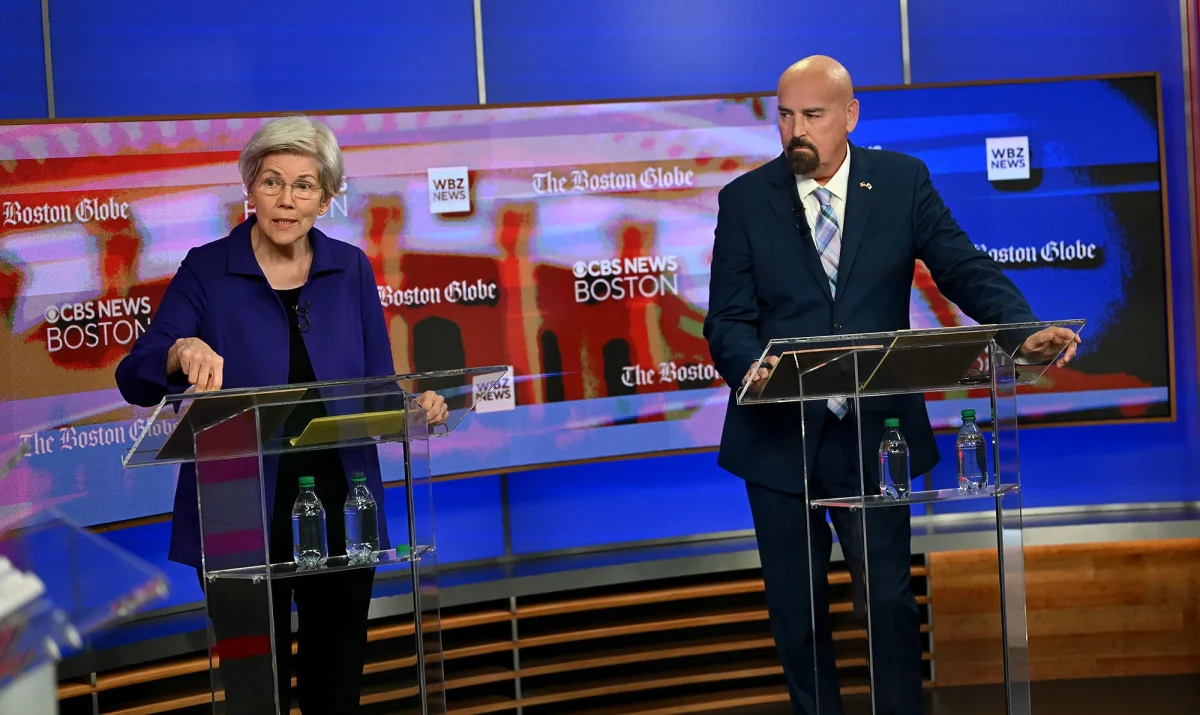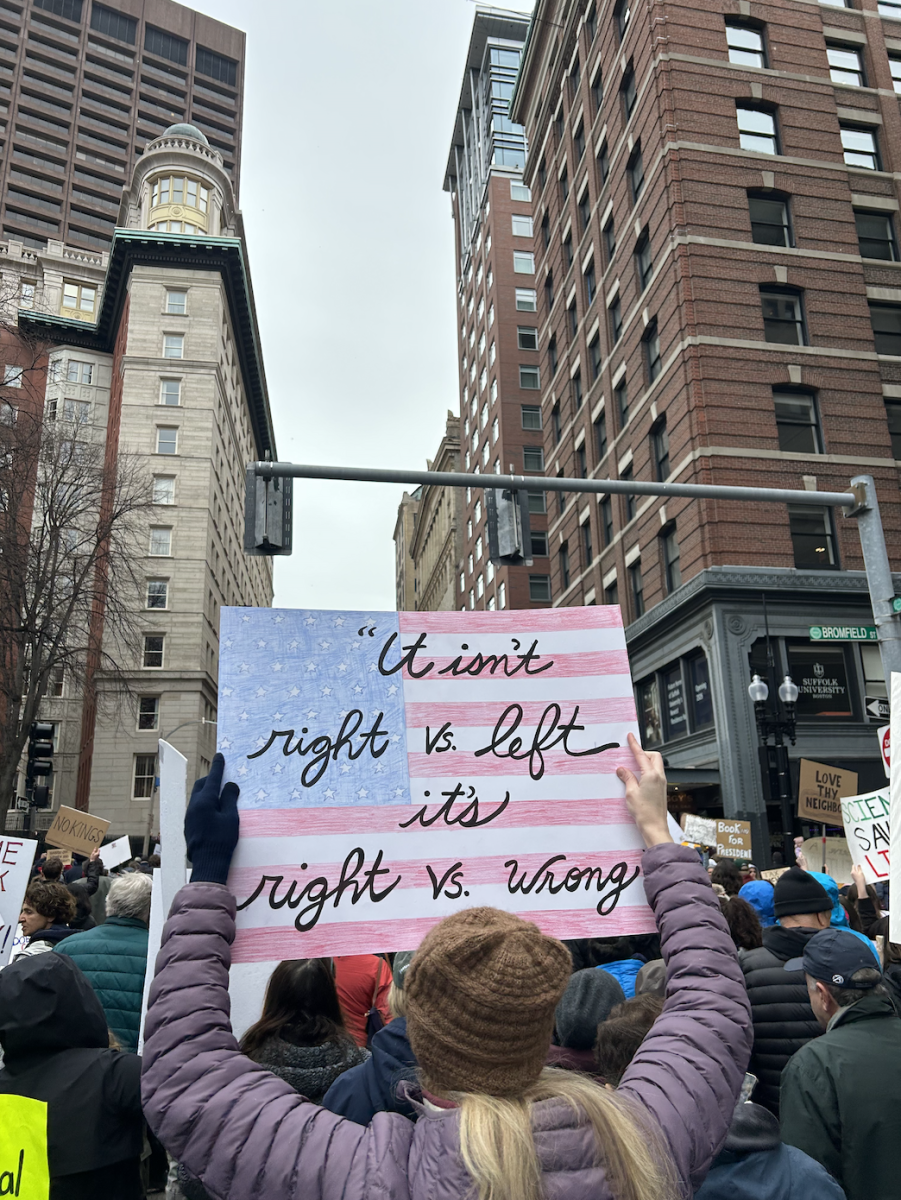Senator Elizabeth Warren (D-Mass.) faced Republican opponent, attorney and veteran John Deaton in Tuesday’s Massachusetts Senate debate, their only Boston area debate before November 5’s general election. Deaton has never held public office. Currently, Warren holds a large lead over Deaton as she vies for a third term; a Republican has not beaten an incumbent Senator in Massachusetts in 100 years. A second debate in Springfield was held Thursday.
Deaton said the main issue separating him and Warren is the U.S.-Mexico border crisis. He emphasized “ending the divisiveness,” saying people on the far-left believe it is racist or xenophobic to even address the border crisis – but not demonizing the migrants is being “soft on immigration.”
“John Deaton certainly doesn’t refer to immigrants as eating our dogs and cats,” said Senator Warren, referring to a remark made by former President Trump, “but he is taking a page out of the same book.” Deaton claimed that nobody in the Senate race can identify with the poor migrants more than him, saying small levels of deportation are critical.
Senator Warren first voted for comprehensive immigration reform in 2013, a bipartisan bill championed by Senator Marco Rubio (R-Fl.). She emphasized how it had every tool it had for a comprehensive plan, including a pathway to citizenship.
“Democrats and Republicans need to work together to separate out this crazy extremism,” said Senator Warren. Deaton referred to Warren as the “only extremist” on the debate stage.
Deaton said he is one of the few Republicans standing up to Donald Trump, notably protecting women’s rights to bodily autonomy. He has accused Senator Warren repeatedly of lying about his stances, claiming she’s called him a “MAGA extremist Republican.” Deaton also said both parties “suck,” and vowed to disrupt Congress’s “broken system.” He called himself not loyal to a party or agenda but loyal to the people of Massachusetts and to the country.
Senator Warren addressed various issues emphasizing if Republicans gain Senate control there would be “zero opportunity to vote for a law to make Roe v. Wade the law of the land,” and gun policies would be set by people who believe “thoughts and prayers are all that we need.” She called Republican control of the Senate not only bad for Massachusetts, but for the whole nation.
The candidates addressed topics such as high cost of living and education. Senator Warren’s housing plan would build 3 million housing units around the country, thousands of which would be in Massachusetts. The plan is endorsed by over 30 Massachusetts mayors. She added that taxes must be slightly raised for the wealthy, using those funds to invest in a housing increase. Deaton addressed a commercial real estate issue, favoring doing away with zoning issues and converting unused commercial real estate into housing.
The debate concluded addressing healthcare, a question submitted from a Brookfield voter who expressed anguish over long provider waitlists and lack of medical care for rural communities. Senator Warren believes Republican Senate control would be spearheaded by people wanting to repeal the Affordable Care Act, costing Massachusetts billions of dollars.
“Our system is already broken,” emphasized Senator Warren, who criticized the corporatization of the healthcare system, emphasizing federal regulations in place that she is devoted to. Deaton brought up closures of Ayer’s Nashoba Hospital and Dorchester’s Carney Hospital, believing Massachusetts needed a senator fighting for doctors, nurses, lab techs and patients; he added that Senator Warren fights against the wealthy instead of fighting for the poor and the middle class.
College students, who make up one-fifth of voters, are encouraged to vote as they can vote in support of policies that will directly affect them such as education, housing, public transportation and future job prospects.
The Simmons chapter of Democracy Matters and the Political Science/International Relations Liaison did not respond to requests for comment in time for publication.










